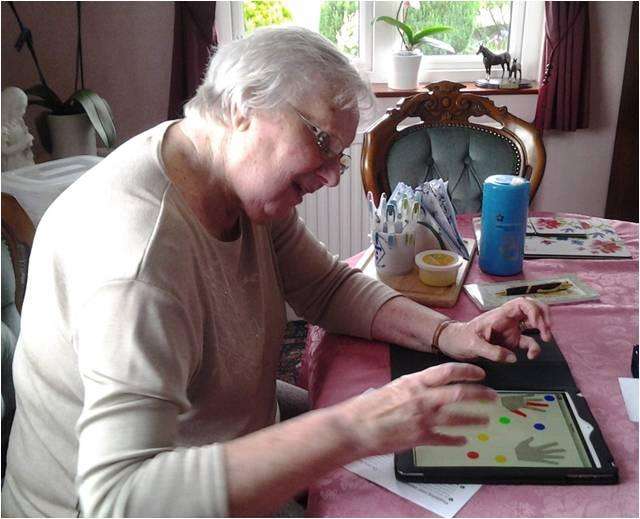Do I need to ask my GP for a referral to Child First Speech and Language Therapy?
No. If you have any queries or concerns about your child’s speech, language or communication development, you can refer your child to us directly without the need for referrals or waiting lists. Simply call or email for a free initial consultation to talk through your concerns and find out whether or not your child may need support.
Can my child see a Speech and Language Therapist on the NHS instead?
Yes, you can contact your local NHS Speech and Language Therapy service, or speak to your GP, Health Visitor or school staff about a referral. NHS Speech and Language Therapy is free of charge.
My child has been referred to our local NHS Speech and Language Therapy service, but the waiting list is very long. Can we see an independent SLT while we are waiting, without losing our place?
Yes, we can typically arrange an assessment within a week of your enquiry and start therapy straight away if required. This will not affect your access to NHS services – you can take your NHS appointment when it comes, and then either a) continue with only NHS therapy, b) continue with both and we can work closely with the NHS therapist to support the child’s best interests, or c) continue with only Child First therapy.
What’s the difference between Independent Speech and Language Therapy and the NHS provision?
While NHS services are free, Independent Speech and Language Therapists charge fees for their time. Independent SLTs are usually able to see your child sooner, more frequently, and at a convenient time that suits your schedule.
Is the cost of Speech and Language Therapy covered by my health insurance?
If you have private health insurance, the cost of therapy may be covered. It is advised that you check the terms of your policy before making an appointment. Parents are responsible for making direct payments for the speech and language therapy service, and may subsequently claim from the insurance company.
How long does speech and language therapy normally take?
It is never easy to predict the treatment length as every child is individual and many factors can influence his/her response to Speech and Language Therapy. Depending on the nature of the difficulty and support available outside of the sessions, speech therapy could last from just a few weeks to a number of months. The Speech and Language Therapist will continually monitor and review your child’s progress ensuring that targets are achieved.
Can my child outgrow his / her speech and language difficulties?
Language continues to develop throughout childhood, but if a child has speech or language difficulties, he or she may not ‘grow out of it’ naturally. Without speech & language therapy, his speech or language could fall further behind his peers – as he grows older it becomes harder for the child to “catch up”. Individualised speech and language therapy can dramatically improve a child’s development and may prevent additional concerns such as behaviour issues or mental health difficulties.
Where will the therapy happen?
At your home, nursery or school. We can discuss which setting may be the most suitable for your child during our free initial consultation.
Do you work with other professionals?
We believe that collaboration is essential for a child to reach his or her full potential, and work closely as a team with all of the key people in the child’s life, including other health and education professionals. With your permission, this can be done in many ways: liaising on the phone, sharing reports, attending sessions, and attending appropriate meetings.
What can I do to help my child’s speech and language develop at home?
Your Speech and Language Therapist will provide you with specific advice, strategies or activities to help you support your child’s development. It is very important that as a parent you are involved in your child’s treatment – you may wish to observe sessions, participate in parent trainings, receive email feedback after school-based sessions, and attend progress meetings.
Should Speech and Language Therapists have professional registration?
All Speech and Language Therapists must be registered with the Health and Care Professions Council. An Independent Speech and Language Therapist should be able to show you their HCPC Certificate and should also be registered with the Association of Speech and Language Therapists in Independent Practice (ASLTIP). You can check membership by looking on the HCPC website and the ASLTIP website.
How do I know you are a fully qualified Speech and Language Therapist?
All therapists at ChildFirst are registered members of the Royal College of Speech and Language Therapists, the Association of Speech and Language Therapists in Independent Practice and the Health and Care Professions Council.
If you have any other questions, please do not hesitate to get in touch.
Talking therapies, or psychological therapies, are effective and confidential treatments delivered by fully trained and accredited NHS practitioners. They can help with common mental health problems like stress, anxiety and depression.
You can access talking therapies for free on the NHS.
You can refer yourself directly to an NHS talking therapies service without a referral from a GP, or a GP can refer you.
Help is available in person, by video, over the phone or as an online course.
Information:
There are also simple steps you can take to look after your mental health.
The Every Mind Matters website offers expert advice to help improve your wellbeing, as well as practical tips on sleep, coping with money worries and self-care.
Important:
Urgent help in a crisis
If you or a loved one are having a mental health crisis, you can call a local NHS mental health helpline for 24-hour advice and support:
Find a local NHS urgent mental health helpline
You can call for yourself, your child, your parent or someone you care for.
If someone’s life is at risk or they cannot be kept safe, call 999 or go to A&E.
What are talking therapies?
Talking therapies can help with common mental health problems like stress, anxiety and depression.
Which therapy you are offered depends on which one has been shown to be most helpful for your symptoms.
Here are a few examples:
- Guided self-help – where a therapist coaches you as you work through a self-help course in your own time, either using a workbook or an online course.
- Cognitive behavioural therapy (CBT) – based on the idea that thoughts, feelings, what we do, and how our bodies feel physically, are all connected. CBT works to help us notice and challenge patterns of thoughts or behaviours so we can feel better.
- Counselling for depression – a type of counselling developed for people with depression.
Talking therapies are offered in different ways, including:
- using a self-help workbook with the support of a therapist
- as an online course
- one-to-one in person, over the phone or through video consultation
- in a group
See more about talking therapies
What can talking therapies help with?
You do not need to have a diagnosed mental health problem to refer yourself to an NHS talking therapies service.
Getting support as soon as you start having difficulties can help to reduce their impact.
You may be:
- feeling anxious
- feeling low and hopeless
- having panic attacks
- finding it hard to cope with day-to-day life
- struggling with flashbacks and nightmares
- feeling stressed
Perhaps you’re finding it hard to cope with work, life or relationships.
Other things that talking therapies can help with include:
- worrying
- obsessive thoughts or behaviours
- fear of social situations
- trouble sleeping
- phobias
If you’ve already been diagnosed with a mental health condition you can still refer yourself to an NHS talking therapies service, or a GP can refer you.
Talking therapies can also help if you have mental health problems resulting from other conditions, such as diabetes, cancer, long-term pain or irritable bowel syndrome (IBS).
What happens when you refer yourself
- Contact your local NHS talking therapies service.
- Someone from the service will get in touch, usually within a few weeks.
- They’ll ask for more details about the problems you’re having. This is known as an assessment.
- If the service thinks they can help you, they’ll recommend a therapy for you. This is based on your symptoms and how severe they are.
- Waiting times for the first session vary. The service will tell you what to expect.
Information:
While you wait for your assessment or therapy to start, you can access expert advice and practical tips on the Every Mind Matters website.
Who can have talking therapies on the NHS?
Anyone who is registered with a GP can get talking therapies on the NHS, but you do not need a referral from a GP.
You can refer yourself directly to an NHS talking therapies service online.
If your first language is not English, talking therapies can be delivered in your chosen language through multi-lingual therapists or confidential translators. Talking therapies are also available in British Sign Language (BSL) through SignHealth Psychological Therapy Service.
Young people
You need to be aged 18 or over. Some services offer treatment for young people aged 16 and 17, but you need to check this with individual services.
Children and young people who are not able to access adult talking therapies can get support with mental and emotional problems from their local children and young people’s mental health service (CYPMHS).
Pregnancy and new parents
If you’re feeling anxious or depressed during pregnancy or after becoming a parent you can also access NHS talking therapies services.
Talk to your midwife, healthcare worker or GP about your mental health, or you can refer yourself to an NHS talking therapies service online.
Older people
Talking therapies have been shown to be very successful and beneficial for older people.
Find out more about how talking helps on the Age UK website
Does my GP need to know?
Talking therapies services normally let your GP know that you are getting support. Your talking therapy team will explain what information will be shared confidentially with your GP and why this is important.
If there is anyone else you would like your information to be shared with, or if you have any concerns about what will be shared, talk to your therapy team.
Other places that offer free help
Some employers provide free counselling for their employees. Ask your HR department.
Most colleges and universities offer free counselling to students who need it. Read a blog about what to do if you’re a student and it’s all getting too much from Professor Prathiba Chitsabesan, National Clinical Director for Children and Young People’s Mental Health.
Some charities offer helplines, cheap or free talking therapies or group support.
Video: Talking therapies for stress, anxiety and depression
Animated video explaining self-referral to talking therapies services for stress, anxiety or depression.




